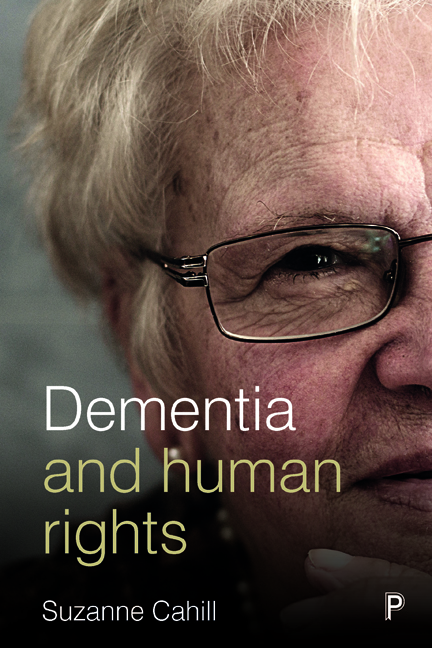three - Setting the context: The UN Convention on the Rights of Persons with Disabilities
Published online by Cambridge University Press: 22 April 2022
Summary
Too often, those living with disabilities have been seen as objects of embarrassment and at best of condescending pity and charity … on paper they have enjoyed the same rights as others; in real life they have often been relegated to the margins and denied the opportunities that others take for granted. (Kofi Annan, 2006)
Introduction
In the opening chapters of this book I have argued that dementia is both a human rights issue (Chapter One) and a disability (Chapter Two), and in both chapters, reference was made to the CRPD. Since the CRPD is used as a compass for analysis in this book and is the common thread linking together the chapters, the purpose of this chapter is to provide an overview of its aims, principles and obligations. In this chapter I also identify the Articles selected for analysis in later chapters. Practical considerations including space limitations, along with my own personal evaluation of the relevance of these Articles to the life of the individual diagnosed with dementia and their family members, have determined this selection. At the outset it also needs to be acknowledged that the rights enshrined in the CRPD are all interrelated, indivisible and interdependent, which means that it would be very difficult to envisage one right, as, for example, the right to independent living, without considering other rights, as, for example, the right to legal capacity or the right to equality, autonomy, dignity and participation.
A key argument marshalled in this chapter is that the CRPD, underpinned by the social model of disability (Mental Health Foundation, 2015; Shakespeare et al, 2017), provides a solid springboard for the reframing of dementia as a human rights issue and for the emergence of social change in dementia policy and practice (McGettrick, 2014; Mental Health Foundation, 2015). Notwithstanding its immense value as a treaty or formal agreement between states, when operationalized and applied to the lives of individuals who have dementia, the CRPD has some limitations and a later part of the chapter highlights these shortfalls and makes recommendations for change. The chapter concludes with an overview of some recent global and European developments that have helped reframe our thinking about dementia as a human rights issue.
- Type
- Chapter
- Information
- Dementia and Human Rights , pp. 47 - 68Publisher: Bristol University PressPrint publication year: 2018



